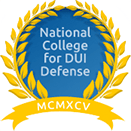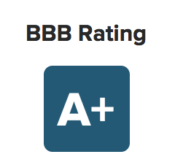New Jersey Criminal Lawyers

NJ has adopted both a law and court rule to govern applications for this program. A full discussion of these guidelines is contained on this website at Pretrial Intervention. We felt that you might also want to consult the Court Rule that applies to PTI and it provides that:
3:28. Pretrial Intervention
(a) Each Assignment Judge shall designate a judge or judges to act on all matters pertaining to pretrial intervention programs in the vicinage in accordance with N.J.S.A. 2C:43-12 and -13.
(b) Where a defendant charged with a penal or criminal offense has been accepted by the program, the designated judge may, on the recommendation of the criminal division manager and with the consent of the prosecutor and the defendant, postpone all further proceedings against said defendant on such charges for a period not to exceed thirty-six months.
(c) At the conclusion of the period set forth in paragraph (b) or earlier upon motion of the criminal division manager, the designated judge shall make one of the following dispositions:
- On recommendation of the criminal division manager and with the consent of the prosecutor and the defendant, dismiss the complaint, indictment or accusation against the defendant, such a dismissal to be designated “matter adjusted–complaint (or indictment or accusation) dismissed”; or
- On recommendation of the criminal division manager and with the consent of the prosecutor and the defendant, further postpone all proceedings against such defendant on such charges for an additional period of time as long as the aggregate of postponement periods under the rule does not exceed thirty-six months; or
- On the written recommendation of the criminal division manager or the prosecutor or on the court’s own motion order the prosecution of the defendant to proceed in the ordinary course. Where a recommendation for such an order is made by the criminal division manager or the prosecutor, such person shall, before submitting such recommendation to the designated judge, provide the defendant or defendant’s attorney with a copy of such recommendation, shall advise the defendant of the opportunity to be heard thereon, and the designated judge shall afford the defendant such a hearing.
- During the conduct of hearings subsequent to an order returning the defendant to prosecution in the ordinary course, no program records, investigative reports, reports made for a court or prosecuting attorney, or statements made by the defendant to program staff shall be admissible in evidence against such defendant.
- No statement or other disclosure regarding the charge or charges against the participant made or disclosed by a participant in pretrial intervention to a person designated to provide supervisory treatment shall be disclosed by such person at any time, to the prosecutor, nor shall any such statement or disclosure be admitted as evidence in any civil or criminal proceeding against the participant, provided that the criminal division manager shall not be prevented from informing the prosecutor, or the court, on request or otherwise, whether the participant is satisfactorily responding to supervisory treatment.
(d) Where proceedings have been postponed against a defendant for an additional period as provided in paragraph
(c)(2), at the conclusion of such period the designated judge may not again postpone proceedings but shall make a disposition in accordance with paragraph (c)(1) or (3). The aggregate of postponement periods under this rule shall in no case exceed thirty-six months.
(e) The Administrative Director of the Courts shall establish and maintain a Pretrial Intervention Registry for the purpose of determining applications, enrollments and the degree of completion thereof by a defendant in a program approved by the Supreme Court in accordance with paragraph (a). The Pretrial Intervention Registry shall contain such information and material as directed by the Supreme Court. No order to expunge or seal records of arrest after dismissal of a complaint, indictment or accusation under paragraph (c) or (d) shall bar the retention of material and information in the Pretrial Intervention Registry for the purposes of determining a defendant’s prior applications to, enrollments in and the degree of completion of a Pretrial Intervention Program or for statistical reports required of the Administrative Director of the Courts, by law or the Supreme Court.
(f) When the criminal division manager and prosecutor reject an application for participation in the pretrial intervention program, there shall be no pretrial review by an appellate court if the rejection is upheld by the designated judge or the Assignment Judge. An order enrolling a defendant into the pretrial intervention program over the prosecutor’s objection shall be deemed final for purposes of appeal, as of right, and shall be automatically stayed for fifteen days following its entry and thereafter pending appellate review.
(g) Denial of acceptance pursuant to this rule may be reviewed on appeal from a judgment of conviction notwithstanding that such judgment is entered following a plea of guilty.
(h) Application for pretrial intervention shall be made at the earliest possible opportunity, including before indictment, but in any event no later than twenty-eight days after indictment. The criminal division manager shall complete the evaluation and make a recommendation within twenty-five days of the filing of the application. The prosecutor shall complete a review of the application and inform the court and defendant within fourteen days of the receipt of the criminal division manager’s recommendation.
An appeal by the defendant shall be made on motion to the Presiding Judge of the Criminal Division or to the judge to whom the case has been assigned within ten days after the rejection and shall be made returnable at the next status conference or at such time as the judge determines will promote an expeditious disposition of the case.
Where application is made pre-indictment, the prosecutor may withhold action on the application until the matter has been presented to the grand jury.
If you require additional information on this subject or would like to inquire about representation, please do not hesitate to contact our office at 855-450-8310.











